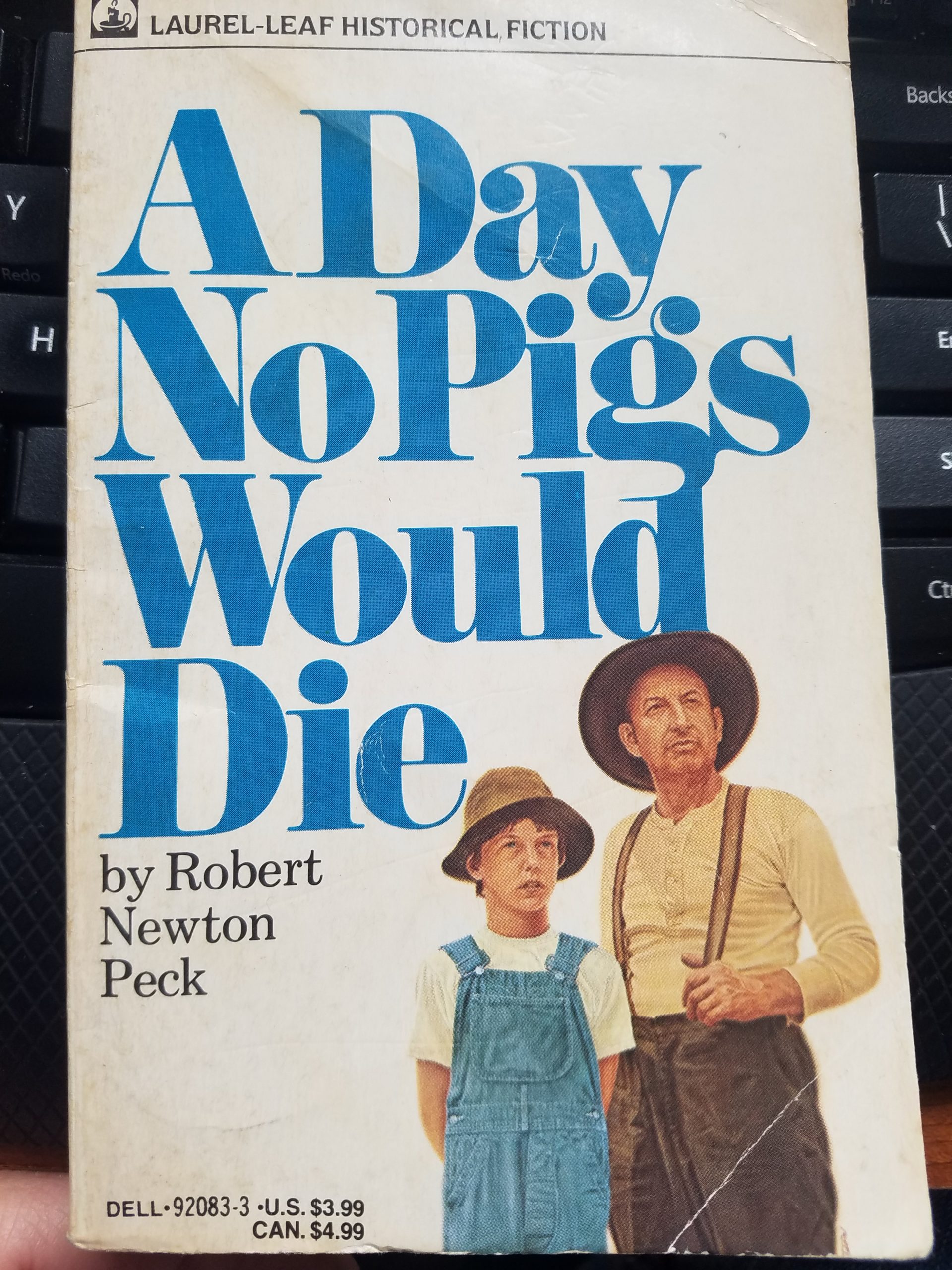Note: It’s been SO LONG since I have posted a book review. This does not mean I have not been reading! This year has been a challenge and a struggle on many front. For me as a teacher, teaching concurrently (teaching students in person at the same time as online) has been the biggest challenge–that, and balancing family life and mandatory quarantines, etc. With that said, I am going back through the books I have been reading lately and posting reviews. Some are books for younger readers that I am previewing for my own children. Others are books I am reading for my own teachings or for pleasure. In any case, I hope to be more regular in posting a book review every Monday 🙂
Book Review: A Day No Pigs Would Die by Robert Newton Peck
 I learned about this book on a poster advertising banned books. This one, if I remember correctly, was banned for being too grim or realistic or something like that. Naturally, if something is banned, I want to read it.
I learned about this book on a poster advertising banned books. This one, if I remember correctly, was banned for being too grim or realistic or something like that. Naturally, if something is banned, I want to read it.
It’s a short read and an easy one, based on Peck’s own childhood and is described as “semi-autobiographical.” At the time of writing this review, I did not go back and check which elements are based on actual events. Though it’s written for children, it is quite blunt in its depiction of the difficulties of farm life in New England.
I read the book in two days—I had left it in the basement and forgotten about it all summer (we only use the basement during the winter, as the warm pellet stove is down there). The setting—sitting next to a warm fire during a snowstorm—helped to emphasize the setting of the novel. Even just taking the dogs out in the cold and all the steps involved in putting on snow gear, shoveling through the crusty top layer of snow so they could walk, etc., helps me to understand a fraction of what the characters in the novel had to go through.
The family in the story follows some of the beliefs of the Shakers, though at times those beliefs seem to be used to justify an acceptance of their difficult and impoverished life in rural Vermont in the early 1900s. The novel follows a twelve-year old named Rob, who helps around the farm, learning about birth and death—his two brothers have already died, though his sisters have survived. There are several bloody and brutal scenes, including a dog fighting a weasel, a hawk killing a rabbit, a pig being mounted quite brutally, and Rob himself pulling a goiter out of an animal with his bare hand. Not to mention frequent butchering of animals for daily survival.
What probably made the novel become added to the list of banned books was also what made it beautiful. In the grim reality of farm life, there is beauty. Rob’s father tells him that growing up means dealing with things that are not pleasant—simply doing what you have to do. Life is not fair and was never promised to be. While the message applies to the grim details of farm life—butchering animals you may have cared for and watching those you love die—it can be applied to life as a whole. For instance, I remember as a kid thinking that puke was possibly the most disgusting thing in the universe. One day—I remember quite clearly—it dawned on me that someone has to clean up puke. Parents. When I asked my parents how they did it, they told me they did it because they had to—because that’s what you do as parents. In many ways, the graphic details of the book help to emphasize that point.
While I would be careful in recommending it to a child (it would depend on age, disposition, etc.), I do think that when framed in the proper context, it will be a poignant read, one that will stay with readers long beyond the actual reading, and one that will help develop life lessons without readers having to necessarily go through the grim realities on their own.